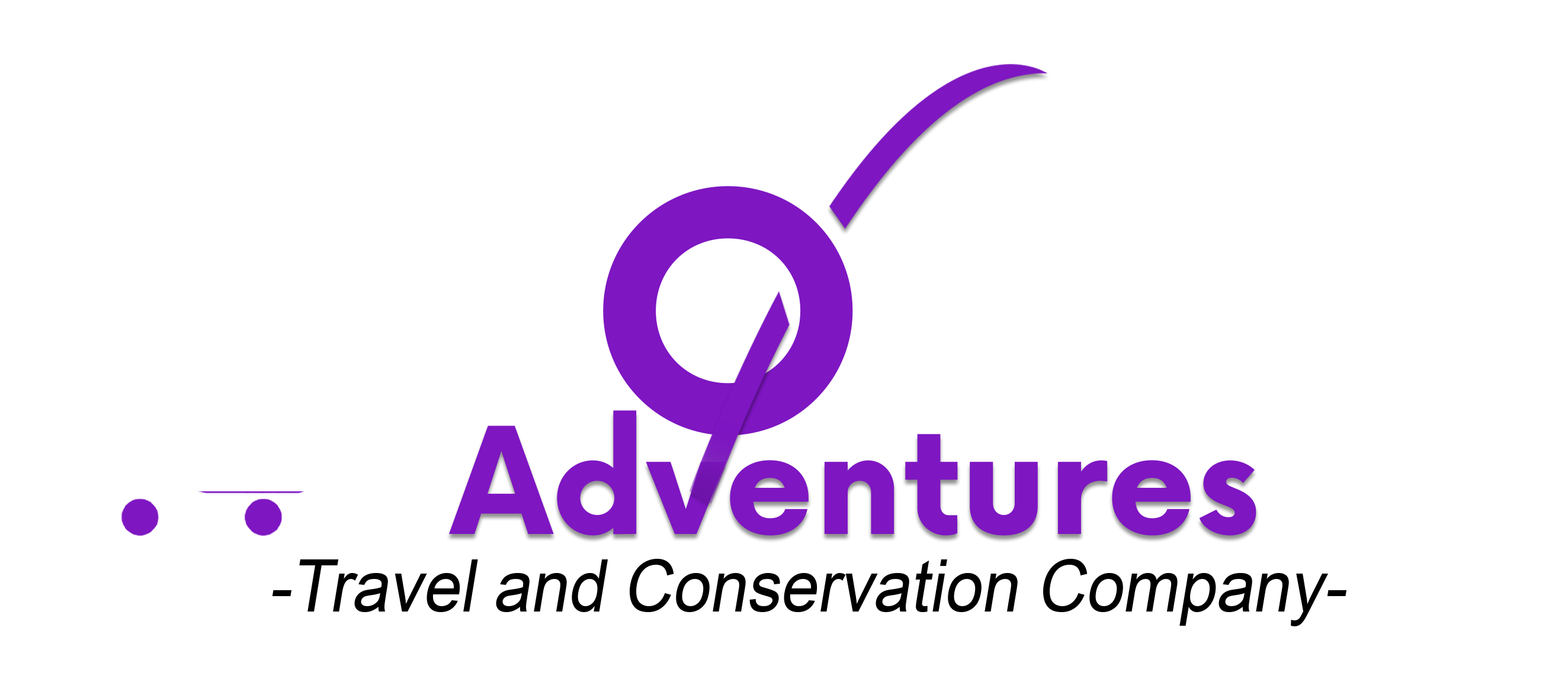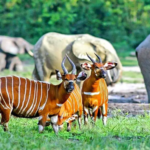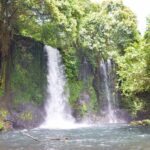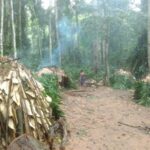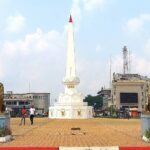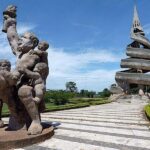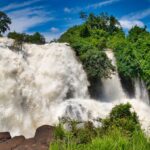Arrive in N’Djamena, meet and transfer to your hotel. Depending on when you arrive there may be time to explore, or you can simply relax at the hotel and prepare for your adventure. Overnight Hotel Mercure or similar. (D)
NB: Dinner will be offered as long as arrival to the hotel is before 9 PM
- contact@tropicaladventuresafrica.com
- We are Open
Tropical Adventures Africa
Chad, Cameroon & Equatorial Guinea
- Home
- Chad, Cameroon & Equatorial Guinea
TRADITIONAL CULTURAL TOUR
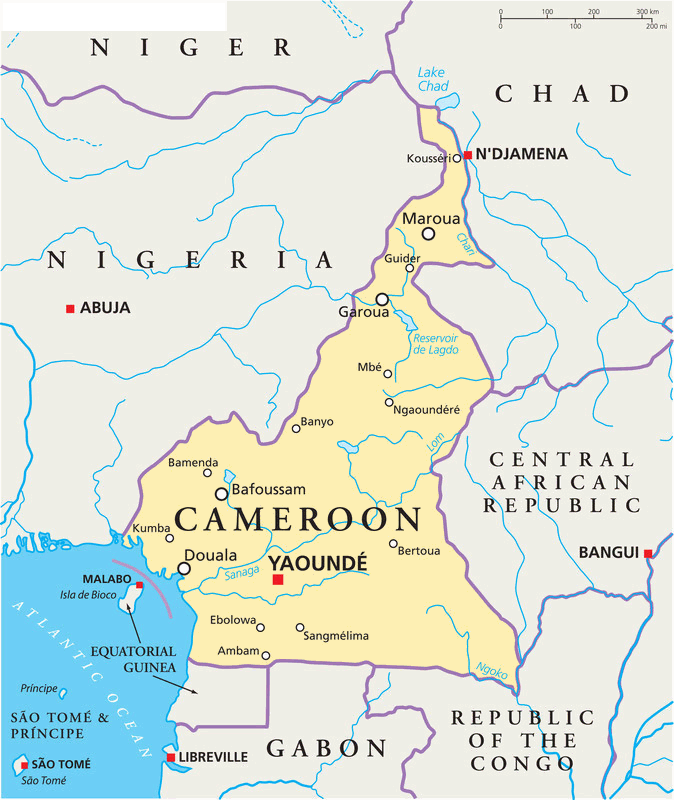
HIGHLIGHTS
Thriving traditional cultures, renowned art forms, flamboyantly colorful festivals, mask dances, and a dazzling ethnic mosaic are the golden gems of tribal Africa. This fantastic cultural odyssey takes you to the remote and seldom visited countries of Chad, Cameroon and Equatorial Guinea. The enormous country of Chad has long been a blank on the map of Africa – but no more. We are proud to offer a trip to this most pioneering of destinations, a land that is as wild as it is beautiful, as untamed as it is graceful. A land of rock arches, of surprising wildlife, and camel caravans traversing the sands, Chad’s allure is the fact that it is virtually unexplored and you are unlikely to see any other westerners outside of the capital. Chad is one of the least visited of all African countries, where genuine encounters with local people are guaranteed. If you think you’ve see the best of what Africa has to offer for wildlife safaris, think again. Think ZAKOUMA in Chad. Starting in January 2015, Africa Parks opened Zakouma up to visitation, and with only 112 guests admitted per year, we are very excited that we are one of them. Zakouma has the four out of the big five, including buffalo, lion, leopard and elephant, and its elephant herd is one of the largest left in Africa.
If you’re a bird lover, this trip has your name on it too! One of the rarest birds in Africa, The Black-Breasted Barbet, can be found here, and you’re guaranteed to add many new species to your bird list. With Simple lodge accommodation you are guaranteed to have a safari experience like none other. Cameroon is home to an astonishing 250 different ethnic groups and a matching diversity of landscapes, from the jungles of the south to the Sahel of the north. Virtually off the map as far as tourism is concerned, Cameroon is home to some of the most traditional cultures in Africa.
Itinerary
-
DAY 1: N’Djamena ( CHAD)
-
DAY 2: N’Djamena ( CHAD)
Start your day by seeing Fort Lamy, sitting on the banks of the Chari River, facing Cameroon. Founded by the French at the turn of the 20th century, it has grown from a town with a population of around ten thousand in the 1930s to something approaching a million now. Over the years it has seen its fair share of conflict, largely destroyed during the civil war of the 80s and stormed by rebel forces in 2008. Its wide boulevards were once flanked with trees, but these were cut down to deprive attackers of covers, and only in recent years did its dusty streets become paved. Stop to visit the local market and the National Museum. Traditional sights, N'Djamena is home to a large and sprawling central market which is interesting to explore, and also contains the National Museum with a collection of prehistoric artefacts from the surrounding area. It is also the most ethnically diverse place in Chad, with people from both the southern and northern ethnic groups as well as Lebanese, European and more recently Chinese populations. Return to your hotel for dinner and overnight. (B,L,D)
-
DAY 3 : N’Djamena - Zakouma
After breakfast, transfer to the airport for your very early flight to Zakouma, upon arrival transfer to the lodge for check in. After lunch you will have your first game drive. Dinner and overnight. (B,L,D)
-
DAY 4, 5 and 6: Zakouma National Park
Two full days to explore Zakouma National Park in search of its wildlife. Excursions will be made by open top vehicles, and we will also attempt to visit some of the villages close to the park (which the government has been trying to relocate for some time without success). Overnight at Tinga Lodge. (B,L,D) Zakouma is an African success story. Decimated by poaching during Chad’s numerous periods of conflicts, wildlife levels diminished enormously but in recent years a EU funded program has enabled key species such as elephants to be better protected. Zakouma offers a true wilderness experience, and game viewing here rivals the better known parks in East Africa.
-
DAY 7 and 8: Zakouma - Guera - N’Djamena
Leave Zakouma and head north through savannah to the village of Mongo, situated in a hilly area dominated by the 1500m Mount Guedi. Explore local villages in route back to N’Djamena, night camping and on the check-in at the hotel in the capital. (B,L,D)
-
DAY 9: N’Djamena – Douala (Cameroon) - Ekom Falls – Manengouba
After breakfast transfer to the airport for your flight to Douala, upon arrival, drive to the west of the country, visiting the picturesque Ekom Falls, located in beautiful primary forest. We stop in markets along the way and from here head to Manengouba and the restored colonial farm of Kleber Lodge. (B,D)
-
DAY 10: Bandjoun – Foumban - Bafoussam
Drive through the lands of the Bamileke people, great artisans and agriculturalists and one of Cameroon’s largest ethnic groups. The Bamileke are spread throughout three regions of Cameroon - West, North-West and South-West, and also split between the English and French speaking regions. Historically, the Bamoun and the Bamileke were united, but during the mid-17th century, the Bamiléké people's forefathers left the north to avoid being forced to convert to Islam and migrated as far south as Foumban. Conquerors came all the way to Foumban to try to impose Islam on them. A war began, pushing some people to leave while others remained, submitting to Islam, which marks the current division between the Bamun and Bamiléké people. The Bamileke are organized into chiefdoms. The chief, or fon is considered as the spiritual, political, judicial and military leader. The chief is also considered as the 'Father' of the chiefdom. The successor of the 'Father' is chosen among his children. The successor's identity is typically kept secret until the fon's death. The fon has typically 9 ministers and several other advisers and councils. The ministers are in charge of the crowning of the new fon. In addition, a "queen mother" or mafo was an important figure for some fons in the past. We visit the Kingdom of Bandjoun, not far from the regional capital Bafoussam, and visit the palace. From Bandjoun, we drive to Foumban, home of the Bamoun people. We explore the town and visit its art museum as well as 19th century royal palace. We also visit the central market, one of the most colourful in Cameroon, and walk through the artisans’ quarter. Foumban is a predominantly Muslim town and the seat of the sultanate of the Bamoun people, founded in the fifteenth century and one of the oldest towns in Cameroon. As well as a royal palace there are also some old German colonial buildings, and its museums hold excellent examples of Bamoun arts and crafts as well as exhibits on local history, masks, traditional dress and everyday items that have been used in Bamoun life. It is particularly rich in local culture and crafts and the Rue des Artisans is home to all manner of small shops and workshops making this one of the best places in Central Africa to buy wood carvings. The Bamoun are great craftsmen, working with wood and bronze, and most of the pieces they create are exported overseas to collectors. Drive to Bafoussam, and overnight at hotel Zingana. (B,L,D)
-
DAY 11: Bafoussam- Dschang
After breakfast, drive to Dschang and visit the museum of civilization. After lunch, drive to village FOTOMENA ; meet and chat with Chief of village, then assist to cultural dance of village people in the Palace. Return to Dschang, dinner and overnight in Malte hotel. (B,L,D
-
DAY 12: Dschang - Bagangte- Yaounde
Visit the market of Dschang and the handicraft center in the morning, then drive through the cliff of Santchou to Bagangte. Continue trip to Yaounde, with stop at the Sanaga Bridge to see how local people extract sand from the river for commercial purpose. Check in hotel mont febe Yaounde, diner and overnight. (B,L,D)
-
DAY 13: Yaounde- Mefou sanctuary- Kribi
After breakfast, quick city tour of Yaounde and drive to the Mefou sanctuary in the forest. Visit gorillas, chimpanzees, and several species of monkeys. Trek in the forest and see several species of trees and medicinal plants. Drive to Kribi, and sea side leisure at the beaches of the atlantic ocean. Diner and overnight at hotel Le Lagona or similar. (B,L,D)
-
DAY 14: Kribi- Douala
Swimming in the ocean in morning, then excursion by canoe to visit a pygmy camp in the forest. Return to the beach, and visit the lobe waterfalls. It’s the only place in the world where a river flows directly to the sea by cascades. Lunch with fish and prawns at the beach, then departure to Douala. Quick city tour of Douala, and check in hotel sawa or similar. Dinner and overnight. (B,L,D)
-
DAY 15: Douala – Malabo ( Equatorial Guinea)
Transfer to airport for depart to Malabo for transfer to your hotel for check in. (D)
-
DAY 16: Malabo City Tour
Start your tour by Visit Pico Basilé; 3018 meters high but you will arrive just up to Bisila Church that is 2.800 meters high. After your tour have a local lunch at a restaurant. The recent influx of oil wealth has led to widespread development in Malabo, and you will be surprised by the choice on offer when it comes to eating and drinking. Whether you want Spanish paella or local pepe soup, you will find it all here. Then move towards the more modern part of the city, called Malabo II, where we can find the new Malabo, also visit the National Park. Transfer to your hotel for overnight. (B, L)
-
DAY 17: Bioko Loop
Drive to Bioko Sur, the protected jungle area which covers the southern portion of the island. First head for Moka via the town of Riaba crossing the impressive Puente Cope Bridge along the way. In Moka we'll visit the village and the nature research Centre and learn about the work of the Bioko Biodiversity Protection Program (BBPP). Moka is the nerve center of the Bubi culture, it gets its name from a king who ruled the island in the nineteenth century and resided in Riaba. Then we'll return to Malabo via the village of Batete, called Maria Cristina by the Spaniards. Its main attraction is a church that is among the rare religious buildings in the world built in wood. During your walk through the village you will see different drying cocoa. Then visit the town of Luba, a picturesque port town that played an important role in the colonial history of this nation, where in 1778 the Spanish first landed. Return to your hotel for overnight. (B,L)
-
DAY 18: Malabo - Depature
After breakfast, transfer to Malabo airport for your flight back home. (B) “Itinerary, hotels & routing sequence can be subject to change without prior notice for any unforeseen condition particularly airline schedule changes between countries.”
Price based on group size minimum of 8 participants and maximum of 12 participants for main trip And minimum 4 participants for Eq. Guinea extension
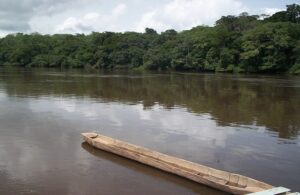
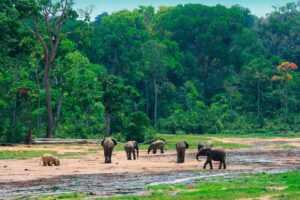
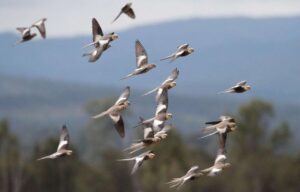
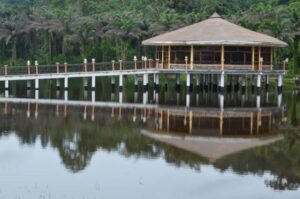
Tour includes:
- Domestic air; one way air N’djamena to Douala.
- Accommodation at hotels mentioned or similar.
- Meals as mentioned in the itinerary (B: breakfast, L: lunch and D: dinner).
- Transportation in a minibus with A/C only in Cameroon while in a minibus and in non- A/C 4x4 cars in Chad.
- All park fees, entrance fees to places mentioned in the program.
- English speaking guides.
- Private Charter plane: N’Djamena to Zakouma
- Tips to guide, drivers, hotel staff and porters.
- Mineral bottled water on vehicles.
Tour does not include:
- International Flights to Chad & back from Cameroon (or from Malabo).
- All Visa expenses (approx. $400.00).
- Vaccinations, yellow fever immunization is required.
- Trip surcharge to operate below required minimum participants.
- Items of a personal nature: beverages, laundry, phone calls, email, souvenirs, etc.
- Hotel accommodations necessitated by changes in air schedules or misconnections.
- Travel protection insurance (highly recommended).
- Airfare from Cameroon to Eq. Guinea and back (current approx. cost is $350.00)-subject to change.
- Any fluctuations of currency or park fee increases.
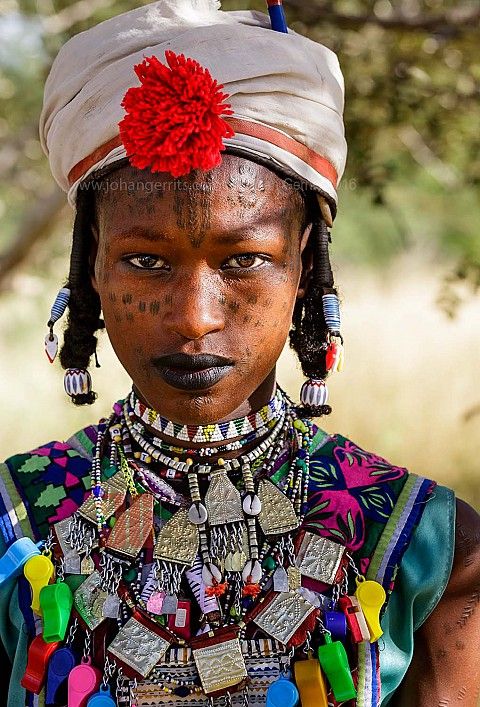
Important Special trip notes:
Chad is our most pioneering destination and is considered a very small and new player in the tourism field and their infrastructure is quite underdeveloped and hence participants must understand and agree that by joining this trip, they are committing to be very flexible and will accept any sudden changes that may be imposed on us to alter or change the tour sequence, itinerary, accommodations, and facilities depending on many factors such as political conditions security concerns, sudden availability shortages, sand storms or change of hotels due to unexpected events. Also vehicles in Chad may not necessarily have A/C running and the weather will be rather warm (upper 90’s) and some drives will be dusty therefore a high level of tolerance and acceptance must be expected. When travelling you need to bear in mind that things won’t always work there as we’re used to them working at home. Travelling in underdeveloped and unnourished destinations requires both patience and a sense of humor. There may be problems with infrastructure, attitudes may be different, and maintenance may not be as high a standard as we would always like, but this is very much part and parcel of travelling in such a place. Also food in Chad will be simple picnic style for several days getting to/from Zakouma. One of the challenges on this trip is the possible change of airline schedules between countries and if we face such issue later on we will do our best to alter the itinerary accordingly and adjust the sequence and re-plan the connecting dates between Ndjamena and Douala and Malabo.
- Old street Bonaberi, Bonassama. Opposite Atlantique Bank. Douala- Cameroon.
- contact@tropicaladventuresafrica.com
- +237 677 57 17 00
